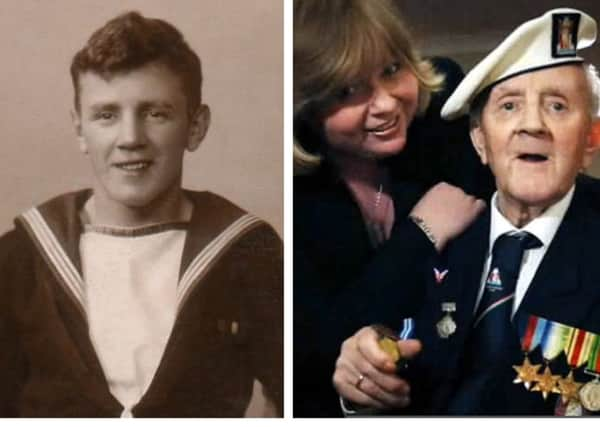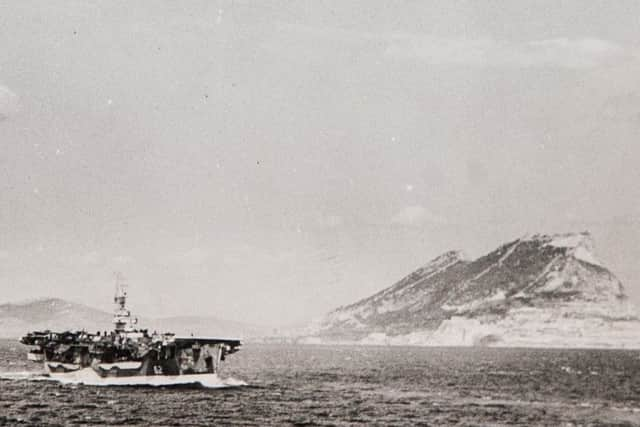Scots to join one million people in Moscow to honour Arctic Convoy war heroes
This article contains affiliate links. We may earn a small commission on items purchased through this article, but that does not affect our editorial judgement.


Pamela Hunter, of Kinross, will join the March of the Immortals in honour of her father, John Burns.
Mr Burns took part in five Arctic Convoys from Scotland that transported food into Russia by sea after Germany invaded the Soviet Union in June 1941.
Advertisement
Hide AdAdvertisement
Hide Ad

Boats lefts Scotland from The Clyde, Loch Ewe in Wester Ross and Scapa Flow in Orkney with around 3,000 men dying during the missions which came under regular German bombardment.
Mrs Hunter will parade through Moscow wear ingher father’s medals and carrying his picture as part of the Immortal Regiment in honour of his service.
Similar events are held throughout Russia - and now other parts of the world - to honour those who fought during World War Two.
Mrs Hunter, a butcher, said she felt “honoured” to return to Moscow to take part in the event, which she attended last year.
Advertisement
Hide AdAdvertisement
Hide AdShe said: “I feel extremely emotional about it. You get charged up before you go. I was there last year and have never experienced anything like it.
“You are welcomed with open arms. As soon as they know you are from Scotland and that your dad was a sailor in the Arctic Convoy, people are so warm, so welcoming. I cried with many, many people. It was an incredible experience.
“The March of Immortals is about remembering our families who fought in the war and remembering it with passion.”
Mr Burns was originally from Edinburgh’s Canongate with his relatives traced to the area over 250 years.
Advertisement
Hide AdAdvertisement
Hide AdA gunner, Mr Burns did five convoy runs from Loch Ewe and Scapa Flow to Murmansk after Stalin called for ally support following the German invasion.
The route passed through a narrow funnel between the Arctic ice pack and German bases in Norway with the danger intensifying in the winter when the ice drifted south.
Many of the convoys were attacked by German submarines, aircraft and warships
Mrs Hunter said: “My dad survived five missions - 3,000 men sadly did not. If a ship was hit by a U-boat or a German plane, these guys just perished in the water.
Advertisement
Hide AdAdvertisement
Hide Ad“These Arctic Convoy runs were suicide missions so these men, these heroes, went to ground after the war. They just didn’t talk about it.”
Mr Burns went on to do similar missions to Malta. His ship was torpedoed and he lost 13 of his friends.
“He was lucky to have survived,” Mrs Hunter added.
Mrs Hunter’s niece, Zara, will also travel to Moscow for the march along with Savannah Taylor, 18, from Orkney, whose grandfather took part in the Arctic Convoy.
Natasha Miles from the Russian Arctic Convoy Museum at Aultbea, Wester Ross, which sits close to the convoy departure point at Loch Ewe, will also travel to Moscow.
Advertisement
Hide AdAdvertisement
Hide AdIn 2013, the efforts of the Arctic Convoy sailors were officially recognised by the British Government when then Prime Minister David Cameron presented the newly-created Arctic Star to a group of 40 veterans.
Mr Burns, who worked at Edinburgh Castle for 25 years, died in 2008 aged 87 with his funeral procession travelling down the Royal Mile from the castle to Canongate Kirk.